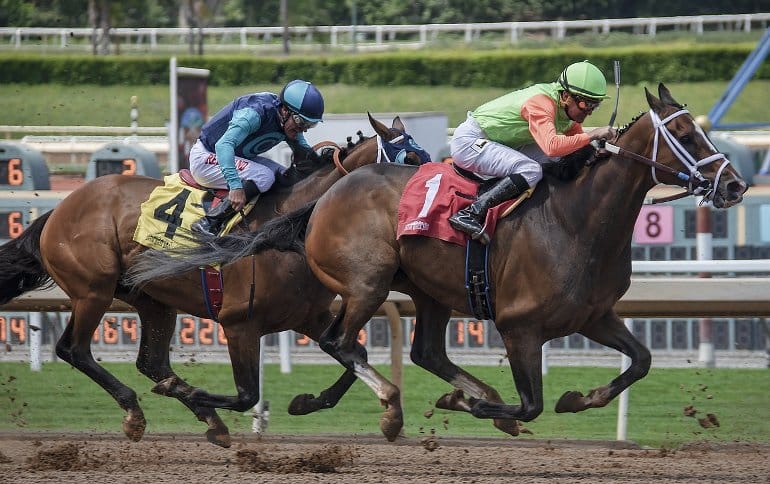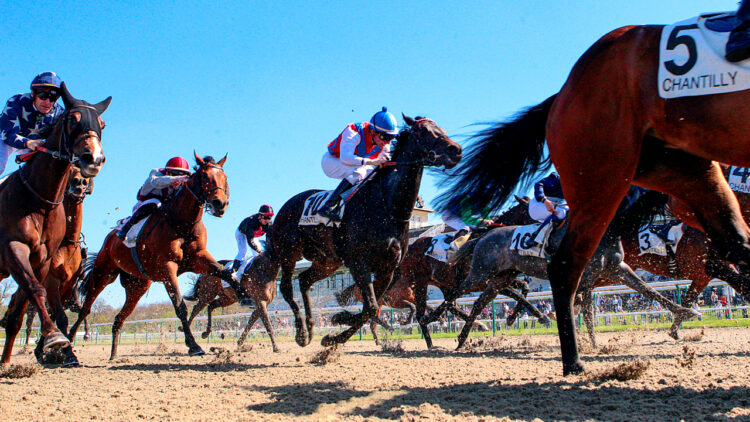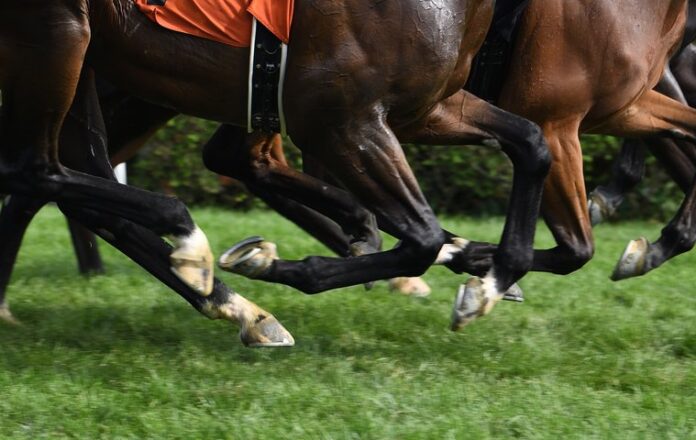When it comes to the world of horse racing, there’s more than just luck and intuition at play. A recent study has uncovered an intriguing correlation between a person’s intelligence quotient (IQ) and their propensity to bet on horses.
At first sight, it may seem like an unlikely connection, but as we dive into the findings, you’ll discover the fascinating nuances behind this unexpected link.
Horse racing has always been a sport that is reserved for the elite class, and throughout history, horse racing events were attended by high-profile individuals with more money, which is somewhat connected to their intelligence.
But how is this connected to betting? – Well, according to research published in the Journal of Behavioral Decision Making men with higher IQ are more likely to bet on horse racing.
Academics at the University of Eastern Finland and the University of Liverpool embarked on a quest to unravel the mystery of why some individuals are more drawn to horse betting than others. What they found was astonishing – men with higher IQs are statistically more likely to indulge in this age-old pastime.
What is surprising is that this study is quite the opposite from older studies which noted that people with lower IQ have a bigger risk of developing a gambling problem.
Let’s dive deeper into this topic and find out the correlation between horse betting and a person’s intelligence.
The Study

The study involved more than 15,000 Finnish men, which is quite a significant number for example. These participants had undergone IQ tests as part of their mandatory military service enrollment with the Finnish Defence Forces.
Researchers meticulously cross-referenced this IQ data with an extensive archive of the men’s online gambling activities. Moreover, they gathered data on socioeconomic status, income, and educational backgrounds, drawing from the comprehensive resources provided by Statistics Finland.
Notably, this investigation focused solely on the male population due to Finnish legal stipulations. Namely, Finnish law mandates military service and IQ testing exclusively for men, thus excluding women from the study.
Intriguingly, Professor David Forrest, affiliated with the University of Liverpool Management School, shared his thoughts on the study’s discoveries.
He emphasized a striking correlation between individuals boasting high IQs and their active engagement in skilled gambling practices. One prominent form of such skilled betting was horse racing.
However, it’s essential to recognize that this study doesn’t offer a definitive answer to why men with higher IQs lean toward horse racing betting.
Instead, it introduces captivating conjectures. Researchers hypothesize that men with elevated IQs may derive satisfaction from the intricate mathematical challenges posed by skill-based betting endeavors like horse racing.
Additionally, Associate Professor Jani Saastamoinen from the University of Eastern Finland contributed his perspective. He likened betting to the mental puzzle-solving akin to crossword puzzles.
Horse racing is a challenging sport to bet on. It involves many different factors and variables that a bettor should consider before making a decision. Therefore, it is similar to puzzle-solving games, which is probably why high-IQ individuals prefer it.
Perhaps, bettors of this ilk relish the cerebral task of crunching numbers and attempting to discern winning strategies—even when the long-term outcome may involve financial losses.
It seems like these individuals are more drawn by the idea of solving problems, predicting outcomes, and doing research, rather than making a profit, even though that is their conscious strategy.
In essence, this study delves into the dynamic relationship between intellect and the world of gambling, shedding light on the multifaceted nature of human decision-making and recreation.
Men With Higher IQ Make Bigger Bets

But high IQ men who share a desire for horse racing betting isn’t the only collation between this sport and intelligence. Researchers were stunned by the data collected from the participants to the point where they decided to further the investigation.
And what they found was quite surprising. Not only that high-IQ individuals more likely to bet on horse racing, but they also found a correlation between a person’s IQ and the amount they wager on horse racing.
The study found out that for each additional point of IQ, gamblers tended to increase their expenditure on horse racing by approximately £800, marking a significant uptick of 21 percent.
The survey findings revealed a compelling trend among participants with higher IQs. Only a modest 19 percent of them favored straightforward bets, while those with higher intellects displayed a penchant for more intricate wagers, such as accumulators.
This pattern was consistent even among the vast majority of horse racing enthusiasts, with over 95 percent of them, including the late Queen Elizabeth, an ardent supporter of the sport, actively placing bets. Their collective annual spending at betting establishments amounted to a staggering £4 billion.
In light of their findings, the researchers propose a compelling notion: that bettors consciously align their betting preferences with their IQ levels. Nevertheless, they exercise caution in emphasizing that their study should not be extrapolated to make sweeping generalizations about other forms of gambling, especially those grounded in chance.
What Does This Say?

Well, people with higher IQ are for some reason drawn to the idea of horse racing betting, but we still don’t know the exact reasons why.
Maybe because people with higher IQs like the idea of horse racing being a more unpredictable sport that relies on many variables that they need to solve. Or maybe because horse racing has always been a sport that drawn high-class individuals who often have higher IQs.
But, the data from this study shouldn’t be generalized. After all, the study doesn’t say much if we cannot get similar results when repeated on a different scale and location. Additionally, this shouldn’t encourage people to bet on horse racing just to be considered as a person with a high IQ.
In the world of horse racing, it seems that intelligence and betting aren’t as disparate as one might initially think. You can try to apply the theory in this study, during the next Breeders Cup, one of the biggest horse racing events of the year, which is happening next November. Read more about it here: https://edge.twinspires.com/racing/breeders-cup/
While the study doesn’t definitively explain the phenomenon, it offers a captivating glimpse into the complex interplay of human cognition and recreational pursuits.
If you want to know more about the psychology of betting, don’t miss this article.







